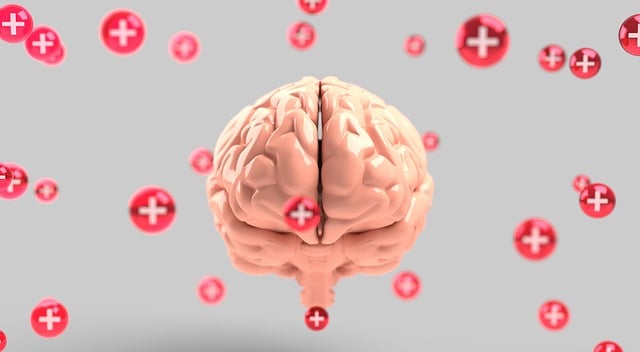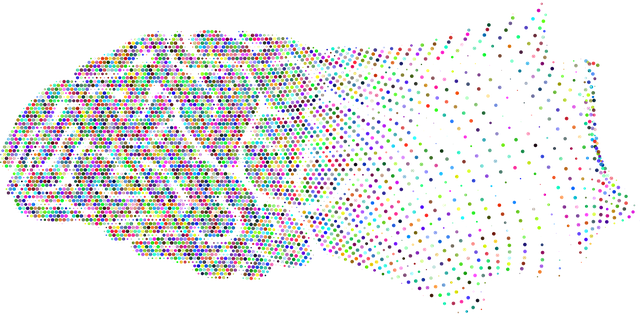Mental health advocacy initiatives like Englewood Gender-Affirming Care Therapy (EGACT) are crucial in building supportive communities and ensuring equal access to quality care. EGACT provides specialized support for transgender and gender-diverse individuals, combining medical expertise with therapeutic exercises to affirm identities. Through public awareness campaigns, workshops, and community outreach, they destigmatize mental health issues and foster inclusivity. These initiatives empower individuals to seek help without judgment, promoting understanding and acceptance globally. Future advocacy trends include tailored care, technology integration, and global perspectives, ensuring more people can access holistic well-being promotion techniques for optimal mental wellness.
Mental health advocacy plays a pivotal role in shaping societal attitudes and improving access to quality care. This article delves into the multifaceted world of mental health advocacy initiatives, exploring their importance and impact. We present a compelling case study on Englewood Gender-Affirming Care Therapy, highlighting its success in promoting well-being. Additionally, we offer practical strategies, address challenges like stigma, and gaze into the future, considering global innovations that are revolutionizing mental health advocacy.
- Understanding Mental Health Advocacy: The Importance and Impact
- Englewood Gender-Affirming Care Therapy: A Case Study in Effective Advocacy
- Strategies for Successful Mental Health Advocacy Initiatives
- Overcoming Barriers: Challenges in Mental Health Advocacy and Solutions
- Future of Mental Health Advocacy: Innovations and Global Perspectives
Understanding Mental Health Advocacy: The Importance and Impact

Mental health advocacy initiatives play a pivotal role in creating a more supportive and inclusive society for individuals facing mental health challenges. It involves raising awareness, challenging stigma, and ensuring equal access to quality care. By advocating for better understanding and acceptance of mental health issues, these initiatives empower people to seek help without fear of judgment or discrimination.
Englewood Gender-Affirming Care Therapy is a prime example of an advocacy initiative that focuses on providing specialized support tailored to the unique needs of transgender and gender-diverse individuals. This approach not only addresses the specific mental health concerns within this community but also promotes self-care practices and enhances healthcare provider cultural competency training. Effective communication strategies, built upon empathy and understanding, are essential tools in these efforts, fostering connections that lead to more positive outcomes for those navigating their mental health journeys.
Englewood Gender-Affirming Care Therapy: A Case Study in Effective Advocacy

Englewood Gender-Affirming Care Therapy (EGACT) stands as a powerful example of effective mental health advocacy. This initiative focuses on providing comprehensive care for individuals experiencing gender dysphoria, offering a safe and supportive environment. Through a holistic approach, EGACT combines medical expertise with therapeutic interventions tailored to each patient’s unique needs. The program includes self-awareness exercises designed to help clients explore and affirm their identities, alongside empathy-building strategies that foster understanding and acceptance within the community.
Beyond individual therapy, EGACT has implemented a robust Community Outreach Program. This involves educational workshops, support groups, and awareness campaigns aimed at destigmatizing gender dysphoria and promoting inclusivity. By engaging with local communities, schools, and businesses, EGACT fosters an environment where everyone feels seen and respected. The success of this initiative lies in its ability to combine personalized care with community-wide advocacy, creating a supportive ecosystem that empowers individuals to embrace their authentic selves.
Strategies for Successful Mental Health Advocacy Initiatives

Mental health advocacy initiatives are powerful tools for creating positive change and improving accessibility to quality care. To ensure success, these campaigns should be multifaceted and tailored to the specific needs they aim to address. One effective strategy is to integrate Englewood Gender-Affirming Care Therapy models, which have proven beneficial in fostering self-esteem improvement among diverse communities. By providing safe spaces that affirm individual identities, such initiatives build trust and encourage participation.
Additionally, developing public awareness campaigns centered around mental health breaks down stigmas and educates the public on recognizing signs of struggle. Organizing stress management workshops targeting both individuals and communities equips people with coping mechanisms, fostering resilience. Combining these strategies creates a supportive environment where everyone can access the resources they need to thrive, ultimately transforming societal attitudes towards mental wellness.
Overcoming Barriers: Challenges in Mental Health Advocacy and Solutions

Mental health advocacy initiatives face significant barriers that hinder progress in raising awareness and securing resources for essential services. One major challenge is the persistent stigma associated with mental illness, which often discourages individuals from seeking help and perpetuates discriminatory practices within communities. Overcoming this requires sustained efforts to educate the public, promote understanding, and foster an environment of acceptance through various means such as social campaigns, educational programs, and policy changes.
Englewood Gender-Affirming Care Therapy exemplifies innovative approaches in mental health advocacy by addressing specific needs often overlooked in traditional care settings. By focusing on emotional regulation and well-being promotion techniques tailored to diverse populations, they contribute to a more inclusive and effective Mental Health Policy Analysis and Advocacy landscape. Such initiatives are crucial in breaking down barriers, ensuring that everyone has access to quality mental healthcare, and ultimately fostering healthier communities.
Future of Mental Health Advocacy: Innovations and Global Perspectives

The future of mental health advocacy is bright and dynamic, driven by a wave of innovative approaches and global perspectives that are reshaping how we understand and support well-being. One promising area gaining traction is Englewood Gender-Affirming Care Therapy, which leverages evidence-based practices to provide tailored, inclusive care for diverse populations. This approach not only addresses the unique mental health challenges faced by different genders but also promotes emotional well-being through culturally sensitive interventions.
Globally, there’s a growing emphasis on integrating conflict resolution techniques and stress reduction methods into mental health advocacy. These strategies empower individuals with tools to navigate difficult situations and manage their emotional responses, fostering resilience and self-care. Additionally, the role of technology in mental health support is expanding rapidly, offering accessible platforms for therapy, peer support, and educational resources that bridge geographical gaps. This digital shift ensures that more people can access care, especially those in underserved communities, contributing to a more inclusive and holistic approach to emotional well-being promotion techniques worldwide.
Mental health advocacy initiatives, as exemplified by Englewood Gender-Affirming Care Therapy, play a pivotal role in shaping supportive ecosystems for diverse communities. By understanding the importance and impact of advocacy, adopting effective strategies, and overcoming barriers, we can foster meaningful change globally. Innovations in mental health advocacy, as explored in this article, hold promise for revolutionizing care, ensuring that everyone has access to resources and support for their mental well-being.














